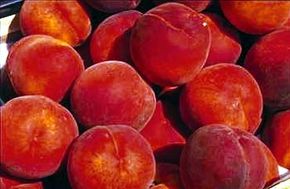Is Organic Food Better than Conventional Food?
Organic and conventional food must meet the same quality and safety standards. Organic food differs from conventionally produced food simply in the way it is grown, handled and processed. There is no scientific evidence to suggest that it is more nutritious or safer than conventional food. A recently published report indicates that organic food is less likely to contain pesticide residues than conventional food (13 percent of organic produce samples versus 71 percent of conventional produce samples contained a pesticide residue when long-banned persistent pesticides were excluded). Yet, according to the National Research Council, the traces of pesticides left on conventionally grown products are unlikely to cause an increased cancer risk. Also, if fruits and vegetables are properly washed, most of the chemicals can be removed.
As for taste, that's up to you to decide what you like best. In general, people tend to find that the fresher a food is, the better it tastes, regardless of how it was produced.
Advertisement
Is There Any Downside to Organic Food?
In addition to the higher price, there are two main criticisms of organic food. First, some people argue that eating such products increases your exposure to biological contaminants, putting you at greater risk for foodborne illness. In particular, concerns have been raised about:
- Manure - While manure is a well known carrier of human pathogens, when properly treated it is both safe and efficient. Plus, certified organic farmers are restricted from using untreated manure within 60 days before the harvest of a crop and are inspected to make sure these standards and restrictions are met.
- Mycotoxins from molds - Fungicides are not permitted in the production and processing of organic foods. However, studies have not shown that consuming organic products leads to a greater risk of mycotoxin contamination.
- E. coli bacteria - Particularly the virulent strain O157:H7, found in the intestinal tract of animals, is a concern. As it turns out, both conventional and organic foods are susceptible to contamination by E. coli.
The second criticism of organic agriculture is that organic farmers can't produce enough to feed everybody. Some experts contend that organic food production, and in particular the failure to implement genetic engineering techniques, will condemn millions worldwide to hunger, malnutrition and starvation because:
- Yield (total harvest per unit area) for organic farming is lower than for conventional farming.
- Organic farming is not economically or socially viable in poorer countries.
In contrast, proponents of organic farming argue that the problem isn't producing enough food -- the problem is getting the food that is already produced to the people who need it. The FAO says that under the right circumstances, the market returns from organic agriculture can potentially contribute to local food security by increasing family incomes. The issue remains under heated debate.
For more information on organic food and related topics, check out the links below.
Related HowStuffWorks Articles
- How Food Works
- How Food Preservation Works
- How do kosher foods work?
- What are genetically modified (GM) foods?
- What is fertilizer and why do plants need it?
- How does the pesticide Dursban work? Does it have the same effect on humans that it has on insects?
- How Grass Works
- How Dieting Works
- Grilling Explained
- Grilling Kabobs
- 11 Tips For Grilled Chicken
More Great Links
- Organic Farming Research Foundation: About Organic
- Economic Research Service (ERS) Briefing Room: Organic Farming and Marketing
- The National Organic Program
- Organic Agriculture at the Food and Agriculture Organization (FAO)
- Organic Farming Research Foundation
- Planet Green
- TreeHugger.com
